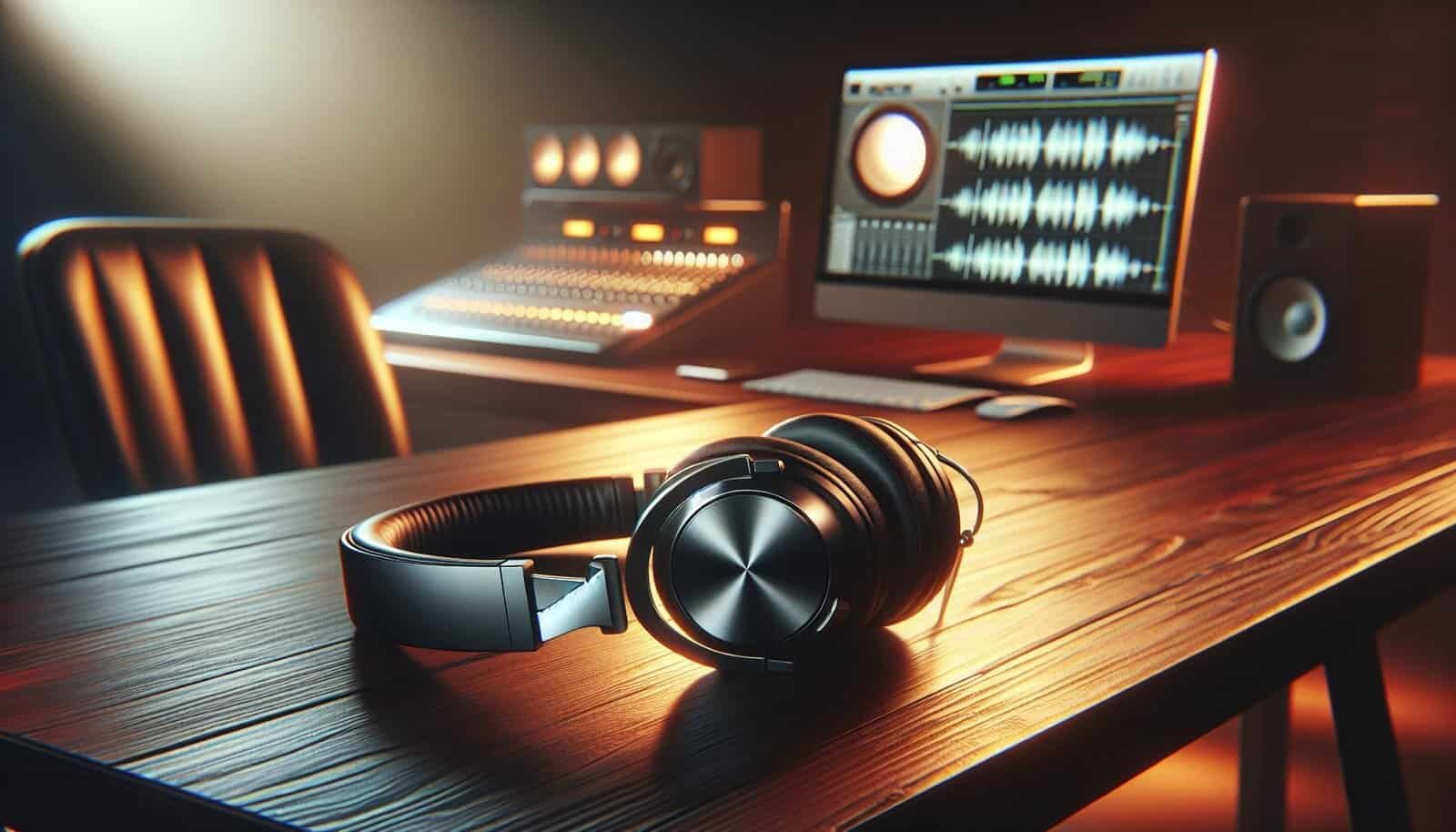Have you ever wondered what it takes to produce a podcast that sounds crisp, clear, and engaging? Perhaps you’re interested in starting your own podcast or enhancing an existing one, and you’ve come across the term “podcast audio editor.” If so, you’re in the right place.
Managing and editing audio content for a podcast can be both a technical and creative process. It involves the understanding of sound, mastering editing software, and a knack for storytelling. While the process might seem daunting at first, understanding the intricacies of podcast audio editing can significantly enrich your podcasting journey.
What is a Podcast Audio Editor?
A podcast audio editor is more than just a tool. It’s your digital assistant that ensures your recordings are polished and professional. Whether you’re removing unwanted background noise, splicing together different segments, or adding music and sound effects, a podcast audio editor is an indispensable part of your podcast production toolkit. This position involves the careful manipulation and fine-tuning of audio recordings to enhance the listener’s experience.
The Role of a Podcast Audio Editor
You might think of a podcast audio editor as the behind-the-scenes wizard of your podcast production. The role requires balancing precision and creativity to bring out the best in any audio content. By skillfully adjusting sound quality, timing, and transitions, you can ensure that your content flows naturally from one segment to the next. It’s like weaving different threads into a coherent tapestry, where each segment and sound has its place and purpose.
Responsibilities of a Podcast Audio Editor
As a podcast audio editor, you often wear many hats. Your responsibilities might include:
- Sound Editing: Enhancing audio quality by removing noise, adjusting levels, and balancing vocal tracks to create a smooth, immersive sound experience.
- Mixing Tracks: Combining multiple audio tracks, such as voice, music, and effects, into a cohesive and appealing whole.
- Mastering: Finalizing the audio to ensure it meets broadcast standards, includes final adjustments to volume, compression, and equalization.
- Maintaining Consistency: Ensuring that every episode maintains a consistent audio quality and style, thus reinforcing the brand identity of the podcast.
Understanding these responsibilities can help you appreciate the depth of work involved and why a good audio editor is crucial for producing high-quality podcasts.
Why is Audio Editing Important in Podcasts?
You might wonder, how important is audio editing to your podcasting endeavor? Simply put, polished audio can significantly impact listener engagement and satisfaction. In today’s competitive podcast landscape, an audience expects a certain level of professionalism, and poor sound quality can be off-putting.
Enhancing Listener Experience
The primary goal of audio editing is to enhance the listener’s experience. When you filter out extraneous noise, correct awkward pauses, and maintain a balance between various audio elements, you help ensure that your content is easily digestible and enjoyable for your listeners. Think of a well-edited podcast as a well-cooked meal; each flavor is carefully balanced to create a delightful experience.
Building Credibility and Professionalism
An expertly edited podcast can also build credibility and professionalism. It signals to your audience that you care about their experience and are serious about your content. By offering high-quality audio, you’re more likely to engage listeners and encourage them to return for future episodes.
Expanding Your Reach
Good audio quality can help expand your reach. Positive recommendations from listeners are more likely to occur when they have a seamless listening experience. This word of mouth can lead to more subscribers and downloads, and ultimately, a larger audience for your podcast.

Basic Tools and Software for Podcast Audio Editing
Choosing the right tools and software is essential for successful podcast audio editing. There are various options available, each with its own strengths and features.
Free Editing Software
If you’re starting with a limited budget, free editing software can be a great place to begin. Some popular free options include:
- Audacity: An open-source audio editing tool that is robust and widely used. It offers numerous effects and supports multiple audio formats, making it suitable for beginners and advanced users alike.
- GarageBand: Available on Mac systems, this software is perfect for simple audio editing and podcast production. Its user-friendly interface and useful presets can get you started with minimal fuss.
Paid Editing Software
For those who require more advanced features, investing in paid software can be worthwhile. Some top-notch options include:
- Adobe Audition: A professional-grade tool with extensive features for sound design and audio post-production. It’s scalable, offering everything from basic editing to advanced noise reduction and sound effects.
- Hindenburg Journalist: Designed specifically for podcasters and radio journalists, it simplifies storytelling by allowing you to focus on the narrative while the tool handles technical aspects.
- Pro Tools: Known as the industry standard in music recording and production, it’s versatile and powerful with a steep learning curve, ideal for users requiring extensive features.
Choosing the Right Software
The key to choosing the right software lies in understanding your needs. Consider whether you require basic editing tools or more advanced capabilities like surround sound mixing or detailed waveform analysis. You also want to think about usability and customer support—features that make the editing process as smooth as possible for you.
Essentials of Editing a Podcast
Becoming proficient at podcast audio editing requires knowledge, practice, and an appreciation for quality audio. Below are essential elements that contribute to a high-quality edit.
Preparing the Audio
Before diving into detailed edits, it’s important to prepare the audio by cleaning it up. You might remove background noises, clicks, and other distractions using noise reduction features in your editing software. This initial step sets the foundation for a clean and professional finish.
Editing for Content
Beyond technical adjustments, editing should focus on content clarity and engagement. This involves cutting out excessive tangents, filler words, pauses, ensuring your message remains concise and impactful. The goal here is to keep your audience engaged from start to finish.
Mixing and Balancing
A successful edit requires careful balance between different audio elements. This means adjusting the volume levels so that vocals are clear and any music or sound effects enhance rather than distract. Familiarizing yourself with EQ settings and understanding dynamic range are essential skills in this process.
Adding Music and Sound Effects
Appropriate use of music and sound effects can elevate a podcast, adding depth and emotional context to your story. When adding these elements, it’s important to think about the tone and feel of the piece and how these additional sounds can complement the spoken content.
Mastering the Episode
The final step in podcast audio editing is mastering. This ensures that your audio is consistent in quality and will sound good across different platforms and devices. Adjusting levels, applying compression, and ensuring peak limits can help avoid distortion and ensure your podcast is broadcast-ready.

Advanced Editing Techniques
Once you’ve mastered the basics, you might consider employing advanced editing techniques to further enhance your podcast.
Multitrack Editing
Editing on a multitrack platform allows you to layer different audio files. This can be particularly useful when working with interviews or multiple audio clips, enabling more granular control over each element.
Seamless Transitions
Crafting smooth transitions between segments is crucial for maintaining your podcast’s flow. Using crossfades and automation to gradually shift audio levels can result in a more professional and engaging listening experience.
Incorporating Metadata
Incorporating metadata such as episode titles, descriptions, and art makes your podcast more searchable and accessible in platforms. Ensuring that metadata is correctly formatted is a small detail that can make a big difference in discoverability.
Utilizing Plugins
Plugins can enhance your audio editing capabilities by providing additional effects and processing options. From equalizers to dynamic processors, the right plugins can help refine your audio and achieve specific soundscapes.
Common Mistakes in Podcast Editing
Even experienced producers can fall into common pitfalls that can detract from the final product. Being aware of these mistakes can help you avoid them and enhance your editing skills.
Over-Editing
While it’s important to refine your audio, over-editing can strip away the natural texture and authenticity of a recording. Ensuring edits enhance rather than obscure the original content is a balancing act that takes practice.
Ignoring Room Tone
Room tone, or the ambient sound present when no one is speaking, is vital for maintaining continuity and preventing jarring audio cuts. Always capture room tone during recording and use it to smooth transitions in editing.
Misaligned Sound Effects
Poorly timed sound effects can be distracting or confusing to listeners. Ensuring that effects complement and align with the spoken content requires careful attention to timing and placement.
Inconsistent Volume Levels
Volume inconsistency can be a major annoyance for listeners, forcing them to adjust their audio devices repeatedly. Using compression and automation can help maintain consistent audio levels throughout your podcast.

Conclusion
Exploring the world of podcast audio editing reveals how crucial it is for creating high-quality content. Whether you’re just beginning or seeking to enhance your skills, understanding the fundamentals and nuances of audio editing can transform your podcast from good to excellent. Remember, while the technical aspects are important, your creativity and storytelling ability are what truly engage and connect with your audience. As you refine your skills, consider the powerful role audio editing plays in delivering your unique message to the world. Your dedication and effort can resonate with listeners, captivating and encouraging them to stay tuned for more.

